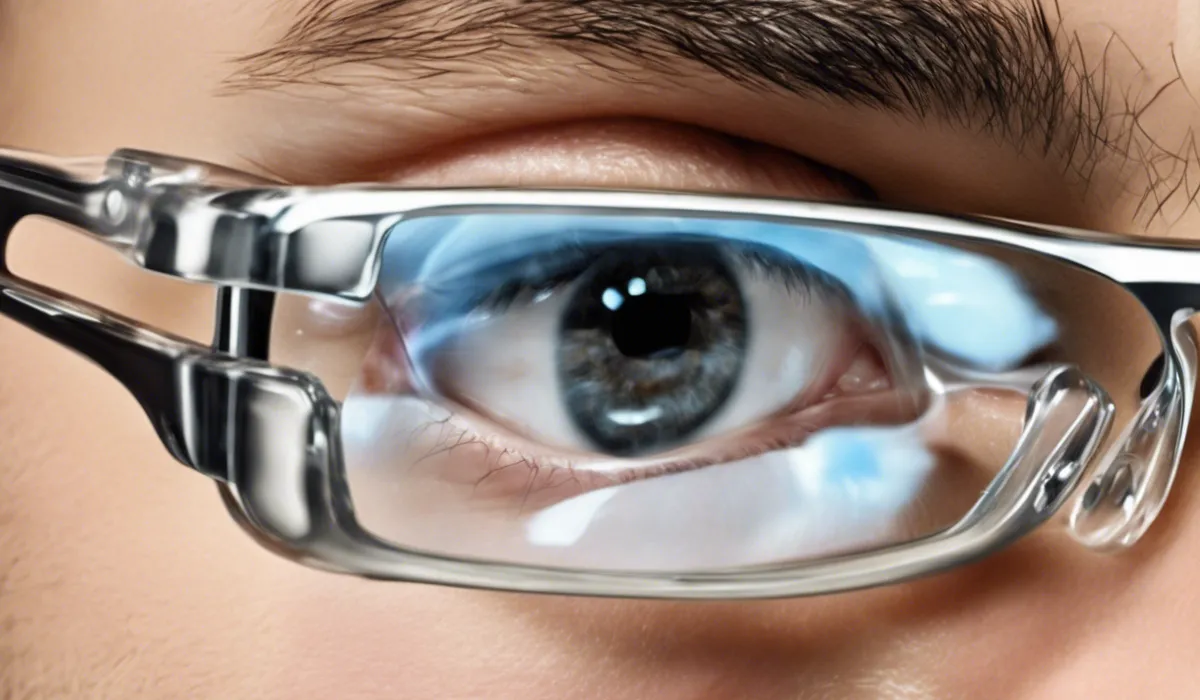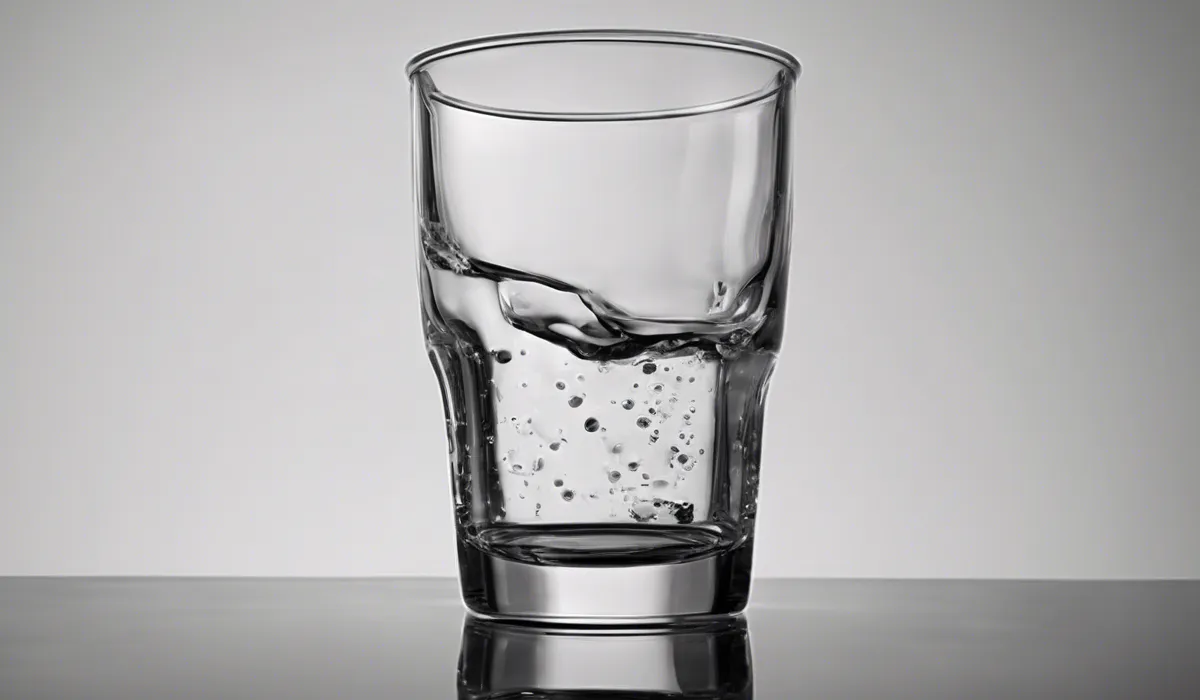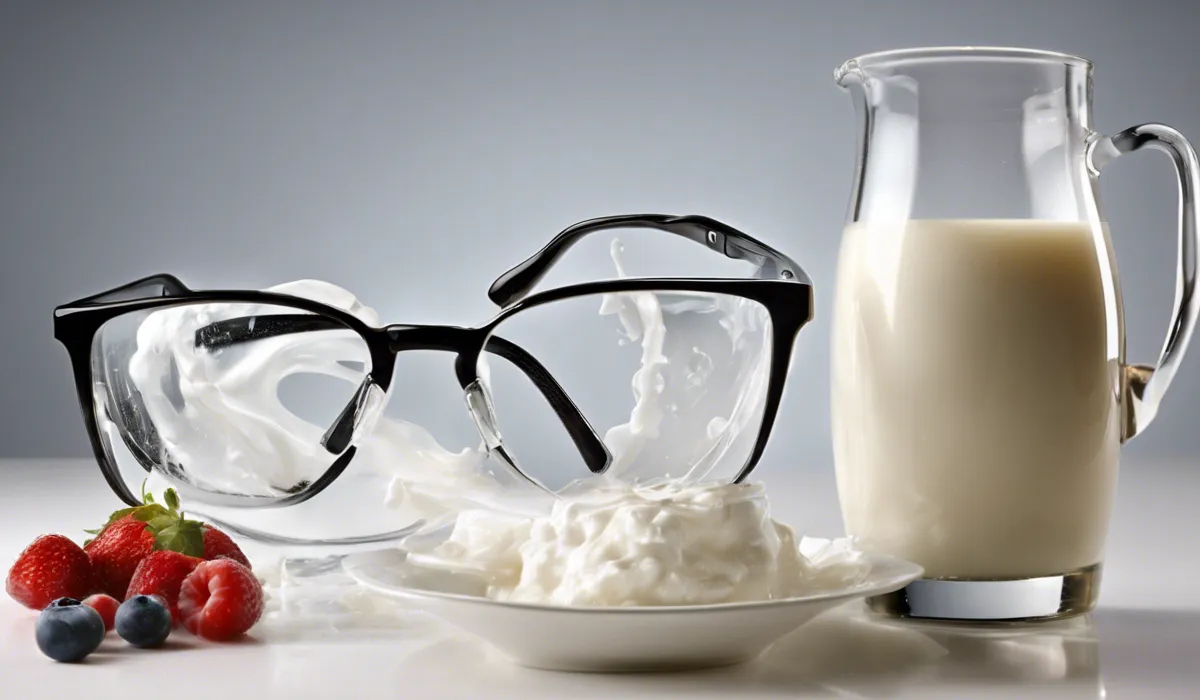What is the Milky Film on Glasses from the Dishwasher? Solve It!
The milky film on glasses from the dishwasher is often caused by hard water deposits or etching. Hard water leaves calcium and magnesium on glassware, while etching, a form of permanent damage, occurs from soft water and harsh detergents.
Causes of the Milky Film on Glasses

Hard Water Deposits
One of the primary reasons for the milky film on glasses is hard water deposits. Hard water contains high levels of minerals like calcium and magnesium, which can leave a white, cloudy residue on glassware after a dishwasher cycle.
As water evaporates during the drying phase, these minerals cling to the surfaces, creating the unsightly film. Over time, the buildup can become significant, making your glasses look perpetually dirty even when they are fresh out of the dishwasher.
Etching Process
Etching is a chemical reaction that can permanently damage glassware, giving it a milky appearance. This process can be triggered by soft water, which, contrary to hard water, is low in minerals but can still cause issues.
When combined with harsh dishwasher detergents, the soft water can corrode the glass’s surface. This type of damage is irreversible, as it is not simply a film on the glass but rather a physical alteration of the glass material itself.
Inadequate Rinsing
Another factor contributing to the milky film is inadequate rinsing of dishes before they are placed in the dishwasher. Food particles, grease, and detergent residue can be left on glasses if the rinse cycle is not thorough enough.
These residues then dry onto the glassware, resulting in a filmy layer that can be difficult to remove. Ensuring that your dishwasher’s rinse cycle is effective is crucial in preventing this issue.
Low-Quality Dishwasher Detergent
The type of dishwasher detergent you use can also contribute to the development of a milky film.
Low-quality or overly abrasive detergents can lead to etching and can also leave a residue if they do not dissolve properly during the wash cycle. This residue can manifest as a cloudy layer on your glasses, detracting from their clarity and shine.
Overcrowding in Dishwasher
When too many items are loaded into the dishwasher, water and detergent may not circulate adequately. This can lead to uneven washing and rinsing, which in turn can cause a milky film to form on glasses.
Proper loading is essential to ensure that each item is cleaned effectively and that the dishwasher can perform at its best.
Prevention Tips

Water Softening Solutions
Using a water softener can significantly reduce the presence of minerals in your water supply, thereby preventing the formation of hard water deposits on your glassware.
If installing a whole-home water softening system is beyond your current means, consider a dishwasher-specific softening agent to help mitigate the effects of hard water.
Proper Loading Techniques
To prevent overcrowding and ensure thorough cleaning, it’s important to load your dishwasher correctly. Make sure that water can reach the inside of each glass and that the spray arms can rotate freely without being blocked by oversized items.
Spacing glassware evenly and not stacking dishes too tightly can also make a big difference.
Choosing the Right Detergent
Selecting a high-quality dishwasher detergent that’s suited to your water type can help prevent etching and film buildup.
Look for detergents designed for use with hard or soft water, depending on your needs. Additionally, some detergents come with built-in rinse aids, which can enhance the rinsing process and leave your glasses sparkling clean.
Regular Maintenance and Cleaning of the Dishwasher
Regularly cleaning and maintaining your dishwasher is vital for its performance and the cleanliness of your glassware.
Remove food particles and residue from the filter, and run a dishwasher cleaner through a cycle to tackle any hidden buildup. This will help ensure that your dishwasher is in top condition and can clean effectively.
Using Rinse Aid
Rinse aids are designed to reduce surface tension, allowing water to run off glassware more easily during the rinse cycle.
This helps to prevent water spots and film from forming. Adding a rinse aid to your dishwasher can make a significant difference, especially if you have hard water.
Solutions for Removing the Milky Film

Vinegar Soak Method
If you notice a milky film on your glasses, one of the simplest home remedies is soaking them in a mixture of white vinegar and water. Vinegar is a natural acid that can break down mineral deposits without harming glass.
Fill a basin with equal parts vinegar and warm water, and let your glasses soak for an hour or so before rinsing and drying them thoroughly.
Baking Soda Scrub
Baking soda is another household staple that can be used to remove milky film from glasses. Its mild abrasiveness can scrub away the buildup without scratching the glass.
Create a paste with baking soda and a little bit of water, apply it to the affected areas, and scrub gently with a soft brush or cloth. Rinse the glasses afterward to reveal a clear shine.
Commercial Lime and Scale Removers
For stubborn hard water buildup, commercial lime and scale removers can be effective. These products are specifically formulated to tackle tough mineral deposits.
Follow the manufacturer’s instructions carefully, as these cleaners are more potent and can cause damage if misused.
Adjusting Dishwasher Settings
Modern dishwashers often come with settings that can be adjusted based on the load and water conditions.
Using a higher temperature setting or a cycle designed for glassware can improve the washing and rinsing performance, reducing the likelihood of a milky residue. Consult your dishwasher’s manual for recommendations on the best settings to use.
Professional Dishwasher Repair and Maintenance
If you’ve tried all the above solutions and still see a milky film on your glasses, it may be time to call in a professional.
A qualified technician can inspect your dishwasher, identify any underlying issues, and perform necessary repairs or maintenance to ensure your dishwasher cleans effectively and efficiently.
FAQs About Milky Film on Glasses from Dishwasher
What causes the milky film on my glasses after dishwashing?
The milky film is typically caused by hard water deposits or etching from soft water and harsh detergents.
Is the milky film on glasses a sign of hard water?
Yes, the milky film can be a sign of hard water, as it leaves calcium and magnesium deposits on glassware.
Can the dishwasher cause etching on glasses?
Yes, etching can occur from using soft water and harsh detergents in the dishwasher, leading to permanent damage.
How can I prevent the milky film on my glasses?
To prevent the film, use a rinse aid designed for hard water and choose detergents that are less abrasive.
Is the milky film on dishwasher glasses removable?
If the film is caused by hard water, it may be removed with vinegar; if it’s etching, the damage is permanent and cannot be removed.
Final Thoughts
The milky film on dishwasher glasses typically results from hard water deposits or etching.
Calcium and magnesium from hard water create buildup, while etching is caused by the combination of soft water and abrasive detergents, leading to irreversible surface damage on the glassware.





